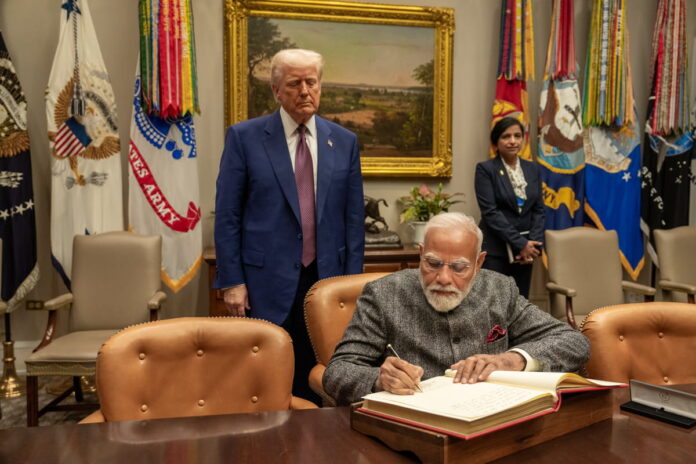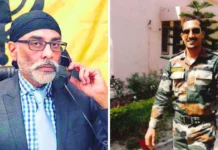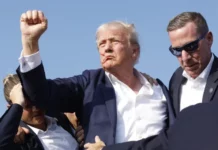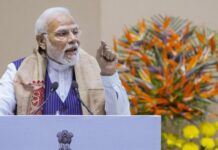India’s Prime Minister Narendra Modi in his speech, following Operation Sindoor, has established that India is now ready to take decisive action and, it won’t just be confined to border areas. If need be, India will go deep inside Pakistan and destroy terror dens and sponsors. He openly condemned Pakistan’s entire terror infrastructure, referring to Bahawalpur and Muridke as “universities of terror.” He further added, “The world has witnessed Pakistan Army officers attending terrorist funerals which clearly shows evidence of state-sponsored terrorism.”
Highlighting India’s response, PM Modi said, “Operation Sindoor has made history, and demonstrated our might in the deserts, the mountains, and in the realm of modern warfare.”
In his speech, PM Modi categorically stated that any nuclear threat would not deter India from taking precise action against terror, and India has the capability and competency to conduct a modern-age war in the 21st century. PM Modi also brought global attention to Made-in-India weaponry and the nation’s evolving defense capabilities. Through Operation Sindoor, India showcased in front of the world that it’s capable of sustaining and dominating modern-day warfare.
He reiterated that “terror and talk cannot take place together, terror and trade cannot go together, and water and blood cannot flow together”. He once again highlighted India’s firm policy of zero tolerance towards terrorism, particularly emanating from across the border.
On trade and tariff, President Donald Trump got some good news last week related to his trade war with the world. First, he secured a 90-day tariff truce with China, breathing room to negotiate further. Then, newly released inflation figures suggested his import duties have not really raised prices for American consumers yet. U.S. and United Kingdom have agreed to a framework not a deal, but a deal to try to make a deal – to resolve their trade differences.
The White House portrayed the China announcement and the U.K. development as trade agreements, but they aren’t. This document does not constitute a legally binding agreement. That doesn’t mean it isn’t good news for consumers and investors around the globe, many of whom worry Trump’s actions may plunge the U.S. economy into recession. And, indeed, markets responded to each development with a happy dance.
U.S.-imposed tariffs are an import tax covered by the American importer of a foreign good, with costs typically passed on to the consumer. While it’s possible for a supplier to absorb some of the costs, that does not happen often to a great degree.
“Tariffs are still present and they are not going away anytime soon,” said Skyler Weinand, chief investment officer at Regan Capital. “Until tariffs are reduced to zero, inflation will present itself and creep into consumer prices and eventually interest rates, which can cost average Americans over $3000 annually.
Regarding trade and tariff standoff between India and US, India’s Foreign Minister Jaishankar reiterated that any agreement on trade and tariff has to be on equal footing and mutual respect, soon after Trump’s announcement on “Zero tariff” with India.
In short, the Trade war, Tariff and Terror will continue, they are not over yet.







